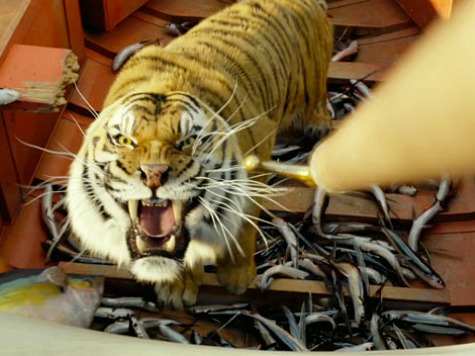The promising HBO drama Luck came to an unceremonious end last year when news that several horses died during the making of the show came to light.
A new article in The Hollywood Reporter says similar animal deaths are common place in Hollywood despite the presence of the American Humane Association, a body charged with making sure animals are treated with care on and off the set. The publication spoke to a number of whistleblowers on the subject as well as studying internal AHA documents to support its case.
THR also says the AHA sought to protect major industry players like directing legend Steven Spielberg from the fallout that occurs from on-set animal deaths.
A THR investigation has found that, unbeknownst to the public, these incidents on Hollywood’s most prominent productions are but two of the troubling cases of animal injury and death that directly call into question the 136-year-old Washington, D.C.-based nonprofit’s assertion that “No Animals Were Harmed” on productions it monitors….The full scope of animal injuries and deaths in entertainment productions cannot be known. But in multiple cases examined by THR, the AHA has not lived up to its professed role as stalwart defenders of animals — who, unlike their human counterparts, didn’t themselves sign up for such work.
Animals have drowned, endured repeated blows to the body and suffered to help make movies and TV shows possible. While some on-set accidents are unavoidable, the report suggests a too cozy connection between the AHA and Hollywood, one that leaves animals vulnerable.
The report mentions several big projects, from Life of Pi to The Hobbit, in which the AHA’s presence wasn’t enough to stop or report such instances of animal cruelty. In fact, it appears the group’s representative would sometimes cover up evidence while stamping the productions as “approved” by the AHA.
The organization defended itself against the allegations.
Dr. S. Kwane Stewart, a veterinarian who took over as the national director of the AHA’s “No Animals Were Harmed” program in April, defends the arrangement. “This whole idea that we’re cozy with the industry — it’s simply not the case,” he tells THR. “We first and foremost want to keep the animals safe.

COMMENTS
Please let us know if you're having issues with commenting.